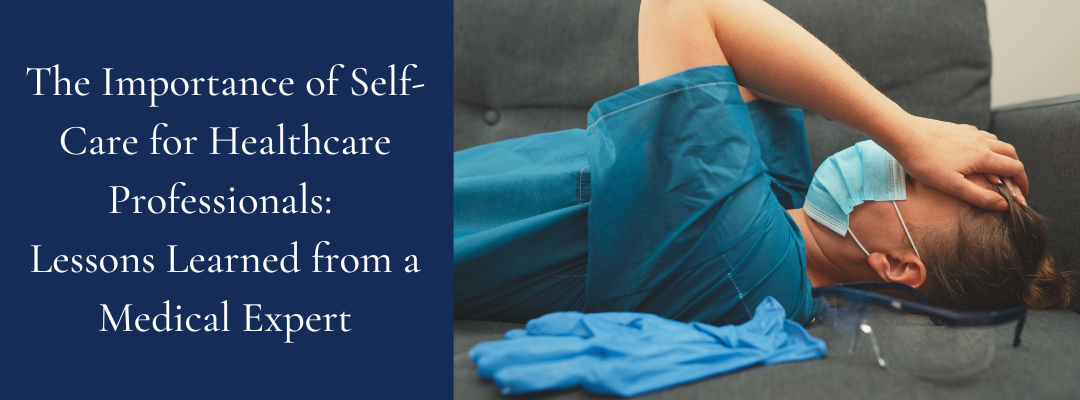
The Importance of Self-Care for Healthcare Professionals: Lessons Learned from a Medical Expert
In a recent interview, a seasoned healthcare professional shared valuable insights about the significance of self-care, particularly for those just beginning their medical careers. This individual, who wished to remain anonymous, reflected on the challenges faced during their early years in the field.
"Throughout my 20s, while navigating medical school and residency, I neglected my health entirely," they revealed. "Like many of my peers, I focused solely on work and studies, assuming that my body and mind could withstand the demands without any special care. Unfortunately, the consequences soon caught up with me."
By their 30s, they had become overweight, diagnosed as pre-diabetic, and regularly struggled with anxiety. A lack of exercise, a poor diet, and no stress management techniques contributed to the steady decline in their health. It wasn’t until they reached their 50s that they fully realized the impact of these choices.
"Today, I dedicate much of my time to staying healthy. I engage in regular exercise, participate in assisted stretching, adhere to a low-carb, high-protein diet, and practice Transcendental Meditation for stress management," they explained. The transformation has been remarkable, but they couldn't help but wonder how much easier life would have been if these habits had been implemented earlier.
Reflecting on their experience, they shared the key healthy habits they wish they had prioritized before starting their career in healthcare:
Physical Fitness: Don’t Neglect It
One of the most overlooked aspects of preparing for a demanding career is physical fitness. Healthcare professionals are often caught up in long shifts, erratic schedules, and stressful environments, leading them to sacrifice exercise. However, regular exercise is critical, not just for physical well-being but for mental clarity and resilience.
Consistency is key—workouts don’t need to be long, but they do need to be effective. A combination of cardio and strength training builds not only physical endurance but also bolsters the immune system, reducing the risk of illnesses. Prioritizing physical fitness before your healthcare career can help you manage the physical demands of the job and keep you feeling strong and energized over the long haul.

Nutrition: The Foundation of Sustained Energy
When you’re running on coffee and little sleep, it’s easy to grab whatever’s convenient. Unfortunately, that’s a fast track to burnout. Nutrition plays a massive role in your performance and well-being as a healthcare professional. I didn’t fully appreciate the power of food until I hit my 40s, but now, my low-carb, high-protein diet keeps me energized throughout the day, and I feel better than I did in my 20s.
Focusing on portion control, cutting out sugary foods, and reading nutrition labels are simple practices that can make a world of difference. Good nutrition doesn’t just fuel you for long shifts—it’s essential for maintaining optimal cognitive function and emotional resilience, both of which are critical in healthcare settings.

Managing Stress: Master It Early
Healthcare professionals are no strangers to stress, but without effective management techniques, it can spiral into burnout. The high demands of the profession often lead many to unhealthy coping mechanisms like overeating or relying on substances. Worse, the stigma around seeking help can prevent healthcare professionals from addressing their stress until it becomes overwhelming.
Mastering stress management techniques early on is crucial. Practices like yoga, meditation, deep breathing, and regular physical activity can significantly reduce stress levels and improve both your mental health and decision-making abilities. Learning how to manage stress effectively will not only improve your own well-being but also make you a better caregiver to your patients.

Discipline and Routine: Your Health Matters Too
Maintaining optimal health requires a consistent effort—it’s not something that happens overnight. It demands discipline, structure, and a commitment to long-term habits. Creating a routine for exercise, healthy eating, and relaxation is key to sustaining those habits. While this may seem daunting at first, a structured schedule can help you stay on track. And remember, you don’t have to do it alone. Workplace and peer support systems can be incredibly valuable in keeping you accountable.

Final Thoughts
Starting your career in healthcare without prioritizing self-care is a risky move. The physical and mental demands of the profession require you to be at your best, and maintaining healthy habits is crucial. By focusing on your physical fitness, nutrition, and stress management now, you can set yourself up for long-term success—not just in your career, but in your life!
